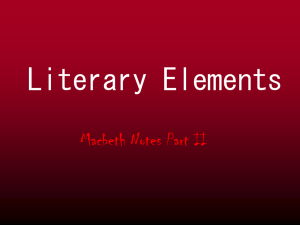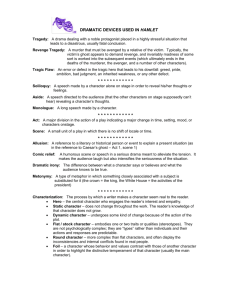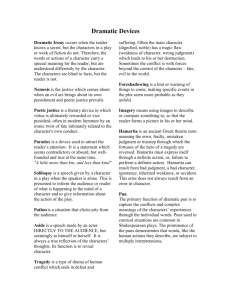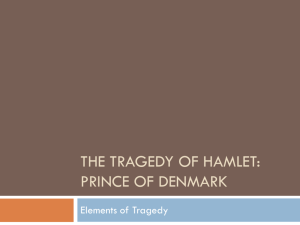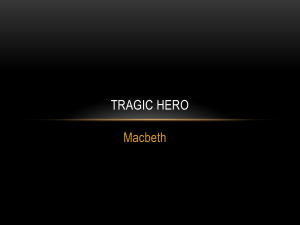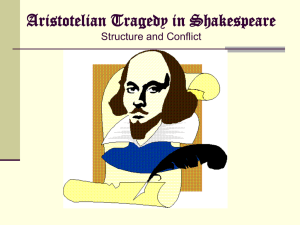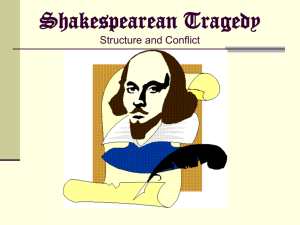DRAMATIC DEVICES Contrast: alternating humor and pathos, song
advertisement
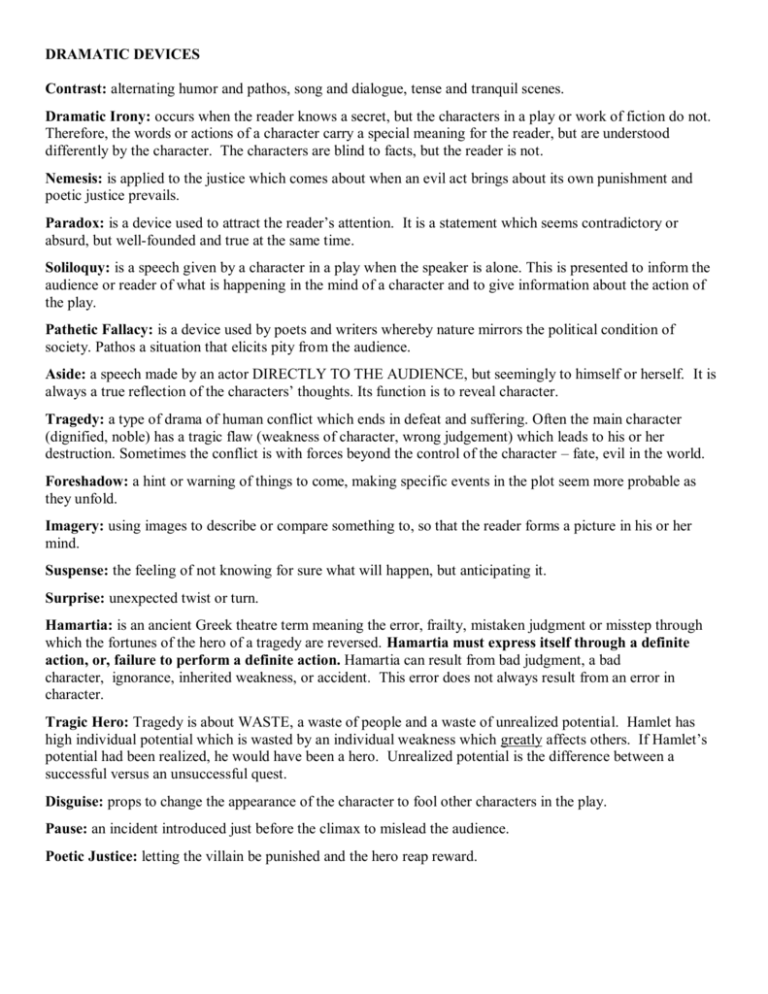
DRAMATIC DEVICES Contrast: alternating humor and pathos, song and dialogue, tense and tranquil scenes. Dramatic Irony: occurs when the reader knows a secret, but the characters in a play or work of fiction do not. Therefore, the words or actions of a character carry a special meaning for the reader, but are understood differently by the character. The characters are blind to facts, but the reader is not. Nemesis: is applied to the justice which comes about when an evil act brings about its own punishment and poetic justice prevails. Paradox: is a device used to attract the reader’s attention. It is a statement which seems contradictory or absurd, but well-founded and true at the same time. Soliloquy: is a speech given by a character in a play when the speaker is alone. This is presented to inform the audience or reader of what is happening in the mind of a character and to give information about the action of the play. Pathetic Fallacy: is a device used by poets and writers whereby nature mirrors the political condition of society. Pathos a situation that elicits pity from the audience. Aside: a speech made by an actor DIRECTLY TO THE AUDIENCE, but seemingly to himself or herself. It is always a true reflection of the characters’ thoughts. Its function is to reveal character. Tragedy: a type of drama of human conflict which ends in defeat and suffering. Often the main character (dignified, noble) has a tragic flaw (weakness of character, wrong judgement) which leads to his or her destruction. Sometimes the conflict is with forces beyond the control of the character – fate, evil in the world. Foreshadow: a hint or warning of things to come, making specific events in the plot seem more probable as they unfold. Imagery: using images to describe or compare something to, so that the reader forms a picture in his or her mind. Suspense: the feeling of not knowing for sure what will happen, but anticipating it. Surprise: unexpected twist or turn. Hamartia: is an ancient Greek theatre term meaning the error, frailty, mistaken judgment or misstep through which the fortunes of the hero of a tragedy are reversed. Hamartia must express itself through a definite action, or, failure to perform a definite action. Hamartia can result from bad judgment, a bad character, ignorance, inherited weakness, or accident. This error does not always result from an error in character. Tragic Hero: Tragedy is about WASTE, a waste of people and a waste of unrealized potential. Hamlet has high individual potential which is wasted by an individual weakness which greatly affects others. If Hamlet’s potential had been realized, he would have been a hero. Unrealized potential is the difference between a successful versus an unsuccessful quest. Disguise: props to change the appearance of the character to fool other characters in the play. Pause: an incident introduced just before the climax to mislead the audience. Poetic Justice: letting the villain be punished and the hero reap reward.
